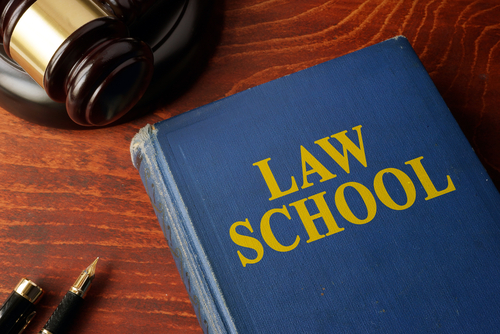Reduction in law school applications result in favorable upsides for some

Shutterstock.com
Law school applications have dropped precipitously in the face of a weak job market and questions about the future for legal employment, according to U.S. News & World Report, though applicants have gained leverage in negotiating scholarships and financial aid.
Another upside for those interested in going to law school is less competition, which is significant because applications still outnumber acceptances.
“You see more and more law schools that are clamoring for the applicants with the decent LSAT scores and GPAs near their medians,” says Jeff Thomas, executive director of prelaw programs at Kaplan Test Prep. Thomas also says law schools are more likely to provide scholarship money for quality students to help maintain their academic reputations.
The U.S. News data reveals a stark contrast in the decline in applications between the top 14 schools in its Best Law Schools Rankings and the lower-ranked schools. The average number of applicants at the higher-ranked schools was 20.6 percent lower for the entering class of 2016 than for the one that entered in 2008. The lower-ranked schools saw a drop of 52.3 percent during the same time period.
The data showed that acceptance rates at the top 14 schools was slightly higher in 2016 than 2008, but climbed by more than 20 percent at lower-ranked schools.
Since 2010, the average first-year class size has dropped 31 percent, after having risen for nearly 40 years, though the number of ABA-accredited law schools remained mostly flat, the ABA Journal reported in May.
But some academics, such as Bill Henderson, a professor at the Indiana University Maurer School of Law, believe that more law schools will close. Henderson says it is unlikely that the demand for legal services will return to previous levels, largely because corporations are doing more work in-house and some are refusing to pay for junior associates’ billing.
In yet another marker of law schools adjusting to circumstances, some have decided to accept Graduate Record Examinations scores for admissions.
This week, Northwestern University Pritzker School of Law and Georgetown Law announced their intention to do so for the 2019 and 2018 entering classes, respectively. Harvard Law School also plans to accept GRE scores while the University of Arizona’s James E. Rogers College of Law already does.
“We have a nagging sense that there are quite a number of science-trained folks who take the GRE, not necessarily because they have a laser focus on going into graduate school in the sciences, though many will, but because they are equivocating a bit about their next educational phase,” says Northwestern law dean Daniel Rodriguez. He says they might consider joint degrees or other options.
Alison Spada, Georgetown Law Center’s assistant dean of admissions, told U.S. News that, “One of the things that the leveling or correction of the national market might have done was eliminated some of the people from the applicant pool that were using law school as a fallback. So I do think in some ways you were left with maybe fewer applications but a more intentional applicant pool.”



